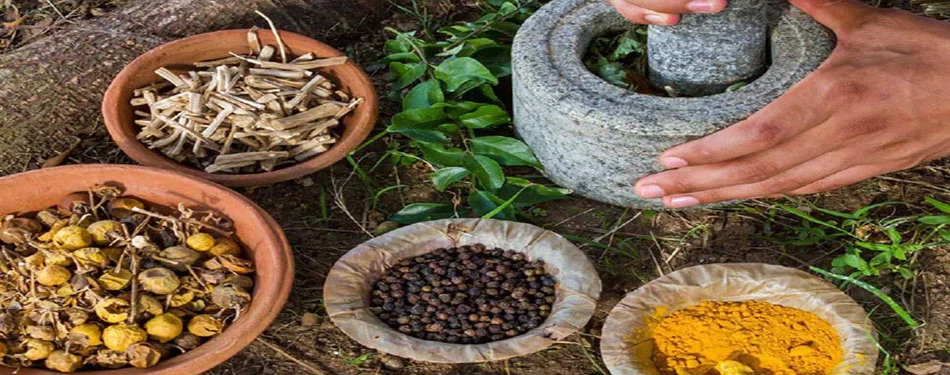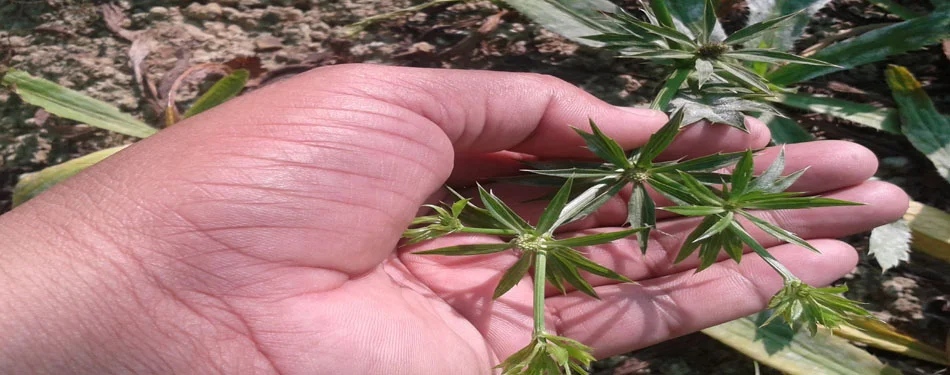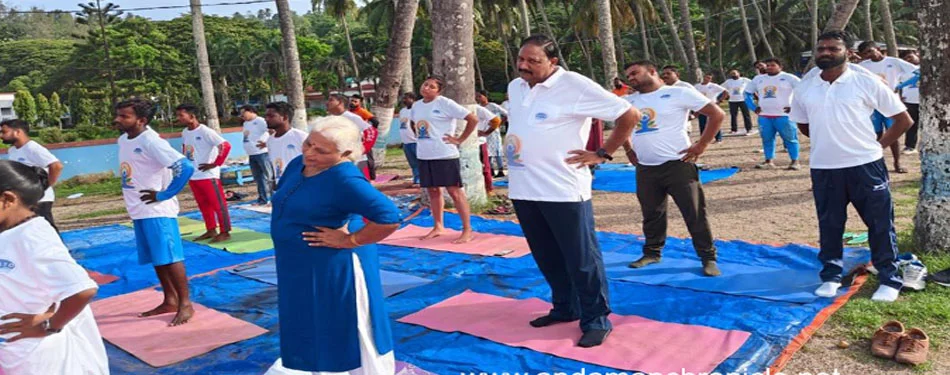Andaman Islands: Exploring the Intersection of Traditional Medicine and Modern
Healthcare

The Andaman Islands, located in the Bay of Bengal, is not only a great tourist spot for
those seeking peace and wanting to explore the stunning natural beauty but also has a
unique mix of traditional and modern healthcare practices. This blog reveals how the
islands integrate age-old healing techniques with modern medical facilities, offering
insights into a holistic approach to health that could benefit both locals and visitors.
The Roots of Traditional Medicine in the Andaman Islands

Traditional medicine in the Andaman Islands is deeply rooted in the rich biodiversity of
the region. The native tribes, particularly in areas like Port Blair, have practiced
herbal medicine for centuries. These practices primarily involve the use of local herbs
and plants, many of which are endemic to the islands and known for their potent
medicinal properties. Traditional medicine practices in Port Blair, Andaman include the
use of turmeric, neem, and other native plants to
treat a variety of ailments from
common colds to more complex diseases like arthritis.
The knowledge of these medicinal plants is often passed down through generations, and
preserved by tribal healers who are respected within their communities. This form of
medicine not only highlights the cultural richness of the Andaman Islands but also
emphasizes a sustainable approach to health and wellness, utilizing naturally available
resources.
Modern Healthcare Facilities in Havelock Island, Andaman
Contrasting with the traditional practices, modern healthcare facilities in Havelock
Island, Andaman, have been established to cater to the growing population and the influx
of tourists. These facilities are equipped with the latest medical technologies and
staffed by qualified professionals to provide a range of healthcare services from
routine check-ups to emergency care.
The presence of these modern healthcare options ensures that both residents and visitors
have access to immediate medical attention when needed. This is particularly important
in cases of accidents or acute illnesses that require prompt and advanced medical
intervention, something traditional medicine might not be able to address effectively.
Integration of Wellness Tourism and Healthcare Options

The unique blend of traditional and modern healthcare in the Andaman Islands has paved
the way for the growth of wellness tourism. Wellness tourism in the Andaman Islands is
not just about relaxation and enjoyment but also involves engaging in health-promoting
activities that uses both traditional and modern healthcare practices.
Andaman Islands wellness tourism and healthcare options include yoga retreats, spa
treatments using local herbs, and wellness centers that offer detoxification and
rejuvenation programs based on ancient practices combined with modern dietary science.
These wellness tourism activities attract tourists who are not only looking to unwind in
the scenic beauty of the islands but are also keen to improve their health in a holistic
environment.
Preservation and Innovation: Traditional and Modern Healthcare in Andaman
The coexistence of traditional medicine and modern healthcare in Andaman reflects a
broader trend of integrating traditional knowledge with scientific advancements. While
modern healthcare provides the benefits of new medical technologies and procedures,
traditional medicine offers sustainable health solutions that are less reliant on
synthetic drugs and more in harmony with nature.
Efforts are being made to document and preserve the traditional knowledge of medicine
that exists on the islands. This includes research into the medicinal properties of
local flora and attempts to integrate these findings into more conventional medical
practices. Such integration is important not only for the conservation of this knowledge
but also for the creation of a more comprehensive healthcare system that respects
cultural heritage while advancing medical science.
Challenges and Future Directions
The integration of traditional and modern healthcare practices in the Andaman Islands
faces several challenges. These include preserving traditional knowledge,
standardization and quality control of herbal treatments, and ensuring that modern
medical facilities are accessible to all residents, including those in remote areas.
Looking ahead, there is significant potential for the Andaman Islands to become a model
for similar regions globally, showcasing how to balance tradition with innovation in
healthcare. Further investment in healthcare infrastructure, along with initiatives to
promote and regulate traditional medicine safely, will be key to achieving this balance.
Strengthening Community Involvement
One of the fundamental steps towards integrating traditional and modern healthcare more
effectively involves enhancing community participation. The knowledge of traditional
medicine largely resides with the local tribal communities, and empowering these
communities is crucial. By facilitating platforms for traditional healers to share their
knowledge with modern healthcare practitioners, the islands can foster a more inclusive
healthcare environment. Additionally, educational programs that teach residents about
the benefits and methods of both healthcare forms can enhance community health literacy
and promote wider acceptance and use of available services.
Research and Development in Traditional Medicines
To harness the full potential of the Andaman Islands traditional medicines, significant
investment in research and development is necessary. Scientific validation of the
medicinal properties of local herbs can pave the way for their integration into
conventional medicine, potentially leading to new, effective natural treatments.
Establishing research centers on the islands that focus on studying and cataloging
traditional remedies could ensure this valuable knowledge is preserved and utilized
optimally. Such efforts can also stimulate local economies and encourage the sustainable
cultivation of medicinal plants.
Enhancing Healthcare Infrastructure
While Havelock Island and Port Blair are stepping stones in modern medical facilities,
there is a need to expand these services across more islands to ensure all residents and
visitors have access to comprehensive healthcare. Improving infrastructure such as roads
and transportation will be crucial in facilitating easier access to modern healthcare
facilities in Havelock Island, Andaman, and other regions. Additionally, telemedicine
can be important in bridging the geographical and logistical gaps that prevent remote
communities from accessing expert medical care.
Promoting Andaman as a Hub for Wellness Tourism
To further capitalize on the Andaman Islands wellness tourism and healthcare options,
marketing strategies that highlight the unique combination of traditional and modern
practices should be implemented. Promotional campaigns can focus on the holistic
wellness experiences available, from traditional healing retreats to modern medical
procedures. Such initiatives not only boost tourism but also encourage a deeper
understanding and appreciation of the islands' unique healthcare model.
Regulatory Frameworks for Safety and Efficacy
Creating strict regulatory frameworks to oversee the practice of both traditional and
modern medicine is essential. This will ensure the safety and efficacy of the treatments
offered, building trust among the users and enhancing the reputation of the islands as a
reliable destination for health and wellness. Regulations should include the
certification of traditional healers, as well as the approval and monitoring of herbal
treatments to guarantee they meet health standards comparable to those in conventional
medicine.
Conclusion
The Andaman Islands offer a fascinating glimpse into how traditional medicine can coexist
with modern healthcare systems. The islands not only provide a sanctuary for those
seeking physical and mental well-being but also serve as a example to the benefits of
integrating diverse medical practices. As we move forward, it will be intriguing to see
how this blend of health services evolves and how it influences similar models around
the world.


